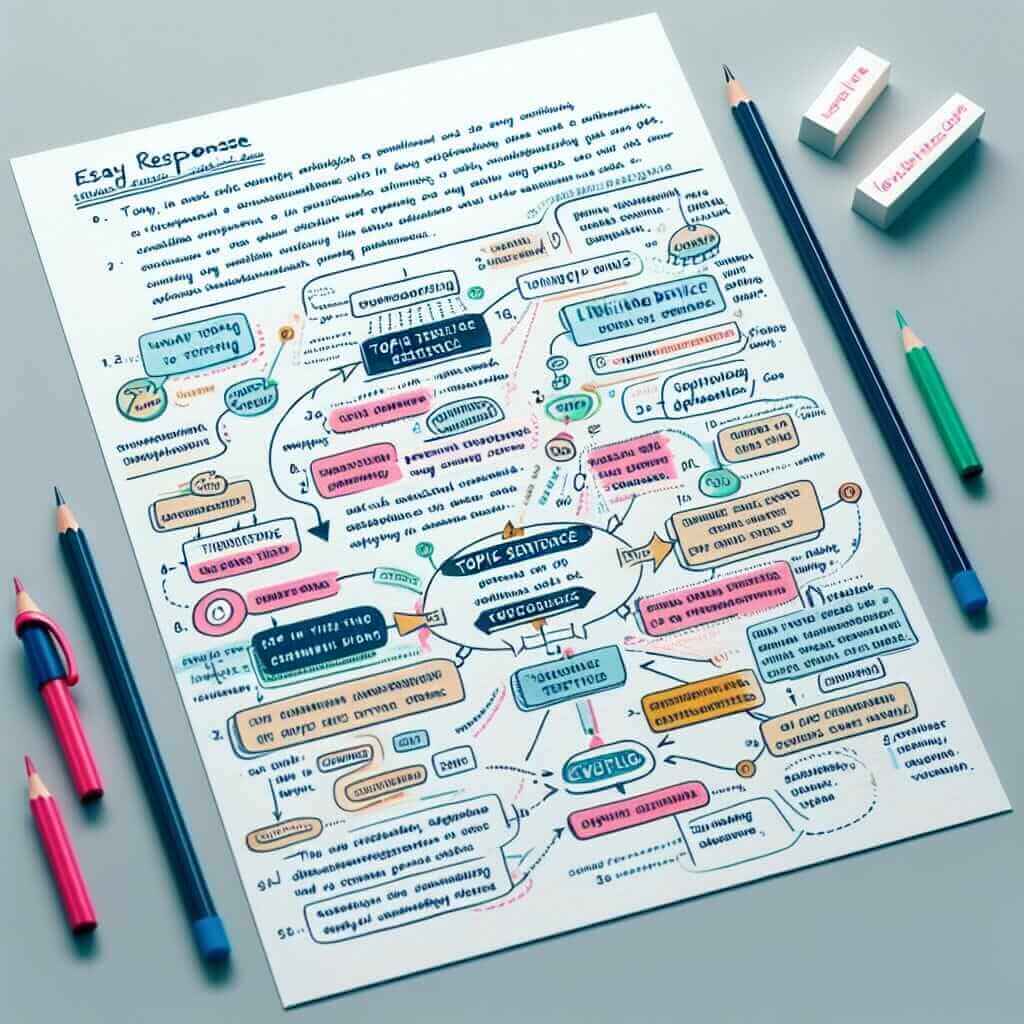The IELTS Writing test often feels like the most daunting section for many test-takers. Unlike the speaking test where you can charm the examiner with your personality, the writing test depends solely on your ability to demonstrate your English language proficiency on paper. Understanding what factors contribute to your writing score is crucial for effective preparation. This article will provide you with a comprehensive breakdown of the IELTS writing score criteria, along with valuable tips to help you excel on test day.
Table Of Contents
Decoding the IELTS Writing Score: What Matters?
The IELTS Writing test, both General Training and Academic, is assessed across four key criteria:
1. Task Response/Task Achievement:
This criterion focuses on how well you address the prompt.
- For Task 1 (Academic): This involves accurately summarizing and highlighting key information presented in graphs, charts, diagrams, or processes.
- For Task 1 (General Training): This involves writing a letter that fulfills all the requirements outlined in the task, using the appropriate tone and style.
- For Task 2 (both Academic and General Training): This involves providing a relevant, well-developed response to the essay question, presenting a clear position throughout your essay, and supporting your arguments with relevant examples.
2. Coherence and Cohesion:
This criterion assesses your ability to present your ideas in a clear, logical, and organized manner. This includes:
- Paragraphing: Divide your essay into well-structured paragraphs, each focusing on a single main idea.
- Topic Sentences: Start each paragraph with a clear topic sentence that introduces the main idea of that paragraph.
- Linking Devices: Use a variety of cohesive devices (e.g., furthermore, however, in contrast, for example) to connect your ideas and sentences smoothly.
- Referencing: Use pronouns (it, they, this) and synonyms to avoid repetition and create a natural flow.
3. Lexical Resource:
This criterion evaluates your vocabulary range and accuracy.
- Range: Use a variety of vocabulary, including less common words and phrases, where appropriate. Avoid repeating the same words or phrases too often.
- Accuracy: Use vocabulary accurately, paying attention to collocations (words that go together naturally), and avoid making errors in spelling or word formation.
- Formality: Use an appropriate level of formality for the task. Task 1 usually requires a more formal tone than Task 2.
4. Grammatical Range and Accuracy:
This criterion assesses your ability to use a variety of grammatical structures accurately.
- Range: Demonstrate control over a range of sentence structures, including simple, compound, and complex sentences. Use a variety of grammatical forms, such as tenses, conditionals, and passive voice.
- Accuracy: Ensure your grammar is accurate, avoiding common mistakes like subject-verb agreement errors, incorrect tense usage, or incorrect word order.

Illustrative Examples:
Let’s look at an example of how these criteria are applied in Task 2:
Essay Question:
Some people believe that the best way to reduce crime is to impose stricter punishments on criminals. To what extent do you agree or disagree?
Sample Paragraph (Demonstrating the Criteria):
It is argued that harsher penalties act as a strong deterrent against criminal activity. (Topic Sentence) This belief stems from the idea that individuals are more likely to be discouraged from breaking the law if they fear severe consequences. (Coherence) For instance, countries with a strict stance on drug trafficking, such as Singapore, often boast significantly lower crime rates. (Lexical Resource + Example) Furthermore, increasing the severity of punishments may lead to a reduction in recidivism rates, as criminals are less inclined to re-offend after experiencing the harsh realities of the justice system. (Cohesion + Grammatical Range)
Ace Your IELTS Writing Test: Top Tips
- Understand the Criteria: Familiarize yourself thoroughly with the IELTS writing band descriptors. These descriptors provide detailed explanations of what examiners look for at each band level.
- Practice Regularly: The key to success in any language test is consistent practice. Write essays and reports on a variety of topics, and get feedback from experienced IELTS tutors if possible.
- Time Management: Learn to manage your time effectively during the test. Aim to spend 40 minutes on Task 2 and 20 minutes on Task 1.
- Proofread Carefully: Reserve the last few minutes of each task to review your work for any grammatical errors, spelling mistakes, or inconsistencies in your ideas.
Conclusion
Scoring well on the IELTS Writing test requires a combination of strong language skills, a clear understanding of the assessment criteria, and effective exam strategies. By diligently practicing and focusing on each of the four key areas, you can significantly improve your writing proficiency and approach test day with confidence. Remember, consistent effort and targeted practice are your greatest allies in this journey. Good luck!